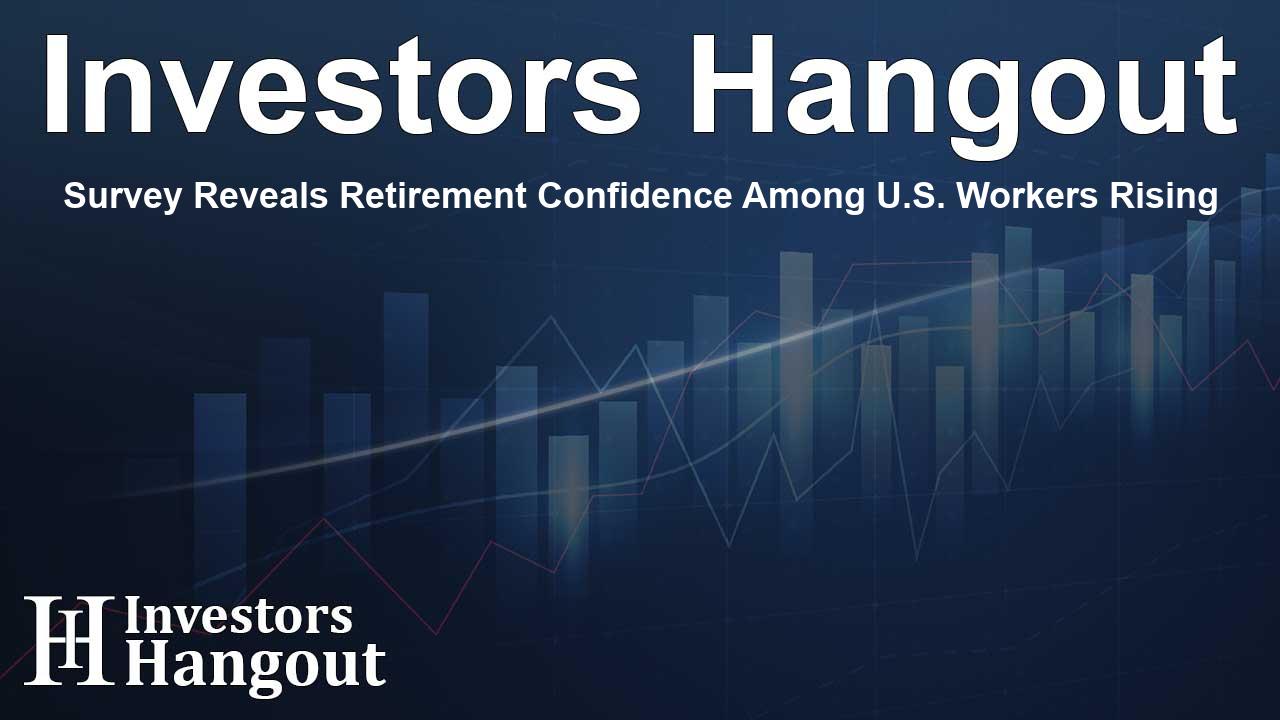Survey Reveals Retirement Confidence Among U.S. Workers Rising

Rising Retirement Confidence Among Workers
The latest survey results have revealed an encouraging trend: American workers are feeling increasingly optimistic about their retirement finances. A recent statewide survey highlights that this optimism, which has surged by 14 points since the previous assessment, is paired with some concerning financial behaviors. While 79% of respondents express a positive outlook on their retirement savings, this confidence may be leading to emotional decision-making that could compromise long-term financial success.
Engagement and Reactive Decisions
A total of 44% of employees reported that they are monitoring their retirement account balances more frequently, driven by recent fluctuations in the market. This increased engagement is commendable; however, it has also resulted in impulsive behavior for many. Nearly half of those surveyed (48%) admitted to shifting their savings to more conservative investment options, which can hinder potential growth during market recovery phases. Alarmingly, this trend is even more pronounced among younger individuals aged 22-34, with 54% opting for safer investments at the expense of their future potential.
Emotional Decisions Can Undermine Financial Goals
It is particularly troubling to note that individuals who exhibit the highest levels of confidence in their financial preparedness are also more likely to engage in behaviors that may jeopardize their financial futures. Those optimistic individuals are 12 points more likely to reallocate their investments towards conservative choices, and 10 points more likely to make regrettable emotional decisions, such as selling assets during market lows or concentrating their investments too heavily in one asset class.
The Gap Between Confidence and Financial Knowledge
Despite their elevated level of confidence, many American workers demonstrate significant gaps in financial literacy. The survey reveals that less than half (46%) of employees understand the critical concept of compound interest, essential for effective retirement planning. Among individuals aged 50-75, the average score on retirement literacy quizzes was just 31%, indicating a disparity between perceived and actual preparedness.
Expert Insights on Investment Decisions
Cathy Marasco, vice president of Protected Retirement at Nationwide, emphasizes the importance of solid financial advice. She encourages workers to leverage potential resources provided by workplace retirement plans or consult with financial professionals. Furthermore, innovative retirement solutions offering lifetime income options can safeguard assets while allowing for growth, even amid market volatility.
Desire for Predictability Among Employees
The findings also illuminate employees' desire for predictability in their retirement plans. An overwhelming majority want features, such as auto-enrollment (73%) and automatic contribution increases (64%), yet access to these tools is limited. The survey shows that only 66% of private sector employers provide auto-enrollment, and a mere 51% offer automatic increases.
Demand for Guaranteed Income
When it comes to protection features, the gap widens even further. While almost 90% of employees express a desire for guaranteed monthly income for life, less than 40% of private-sector employers offer such options. Many employers cite the associated costs as a barrier to providing these essential features, but the majority of employees (85%) are willing to invest more for guaranteed income options.
Conclusion: Bridging the Gap
Cathy Marasco advocates for private employers to enhance their retirement offerings following these insights, especially regarding guaranteed income sources. Such innovative solutions not only benefit employees, fostering retirement readiness but also support organizations in easing long-term financial pressures and improving recruitment and retention. Building a strong foundation for retirement security requires more than mere confidence; it necessitates the right tools and knowledge to navigate the journey effectively.
Frequently Asked Questions
1. What does the survey reveal about American workers' retirement confidence?
The survey indicates that 79% of American workers feel optimistic about their retirement savings, reflecting a significant increase in confidence.
2. How are market changes affecting retirement savings behaviors?
Market fluctuations have led many workers to frequently check their account balances and shift investments to more conservative options, which may limit growth.
3. What are the risks associated with emotional investment decisions?
Engaging in emotional decision-making can lead to actions like selling at market lows or concentrating investments, thereby jeopardizing long-term financial goals.
4. What financial knowledge gaps exist among American workers?
Significant gaps in financial literacy are evident, with less than half understanding the concept of compound interest and only 31% achieving passing scores on retirement literacy quizzes.
5. What do employees want from their retirement plans?
Employees desire features like auto-enrollment and guaranteed income options, yet many lack access to these tools in their employer-provided retirement plans.
About The Author
Contact Evelyn Baker privately here. Or send an email with ATTN: Evelyn Baker as the subject to contact@investorshangout.com.
About Investors Hangout
Investors Hangout is a leading online stock forum for financial discussion and learning, offering a wide range of free tools and resources. It draws in traders of all levels, who exchange market knowledge, investigate trading tactics, and keep an eye on industry developments in real time. Featuring financial articles, stock message boards, quotes, charts, company profiles, and live news updates. Through cooperative learning and a wealth of informational resources, it helps users from novices creating their first portfolios to experts honing their techniques. Join Investors Hangout today: https://investorshangout.com/
The content of this article is based on factual, publicly available information and does not represent legal, financial, or investment advice. Investors Hangout does not offer financial advice, and the author is not a licensed financial advisor. Consult a qualified advisor before making any financial or investment decisions based on this article. This article should not be considered advice to purchase, sell, or hold any securities or other investments. If any of the material provided here is inaccurate, please contact us for corrections.
